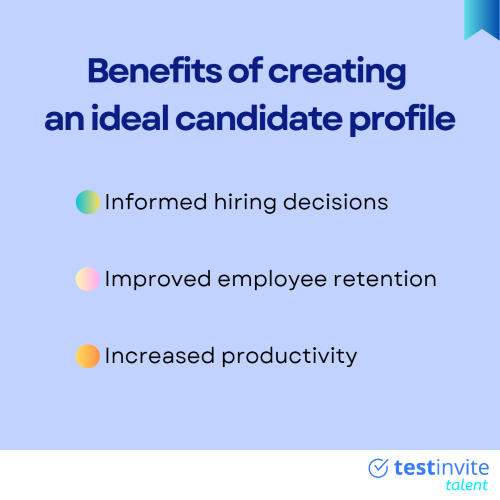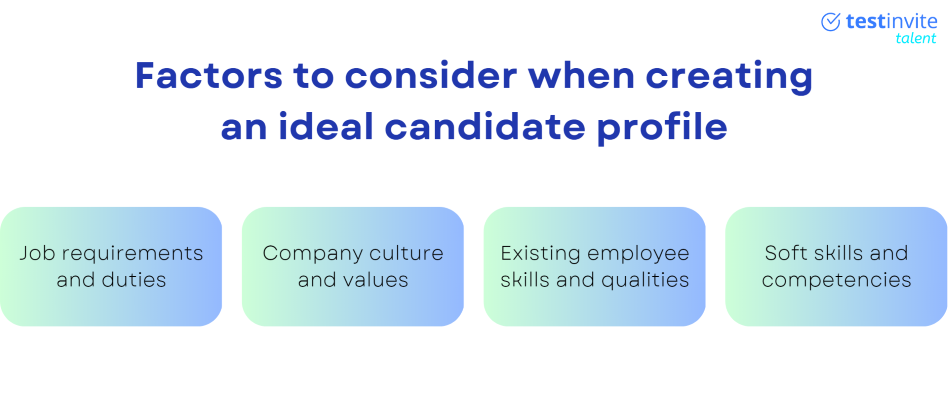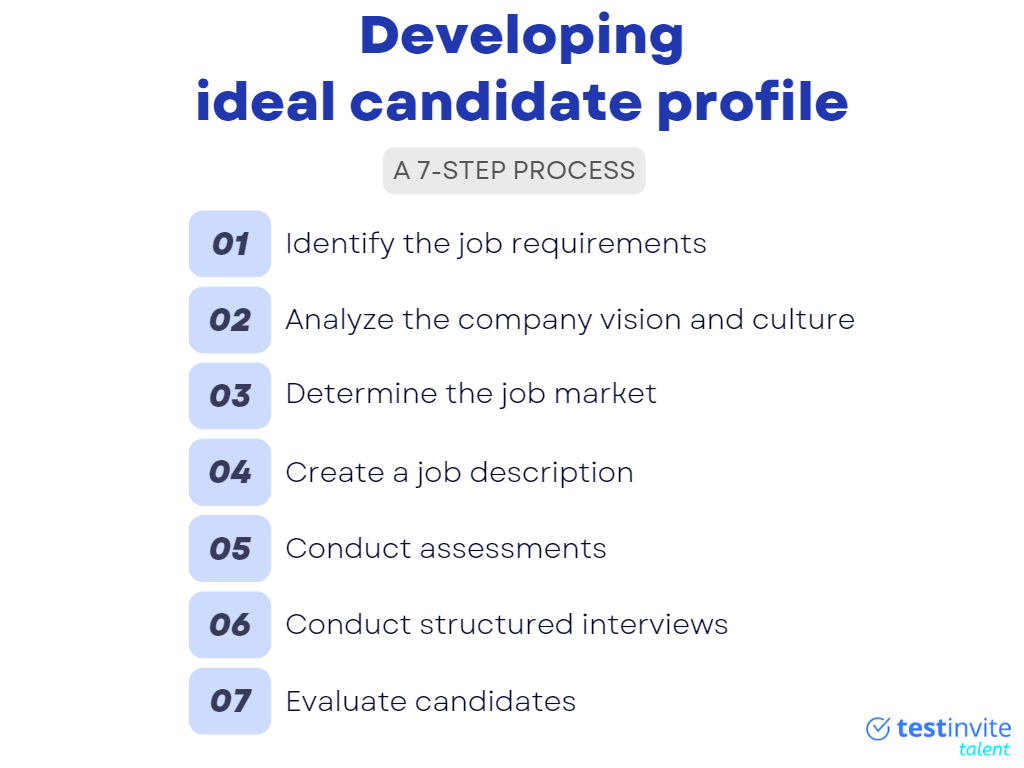All Resources
Searching for the best fit? When it comes to hiring, finding the right candidate can be a time-consuming and costly process. One way to streamline the recruitment process and find the best candidate for the job is to create an ideal candidate profile.
Developing an ideal candidate profile is a structured process that involves analyzing the job requirements, company culture, and the skills and qualities of your current employees. In this article, we'll explore the concept of an ideal candidate profile and how it can help you find the perfect fit for your organization.
Before diving into the details, let's define what an ideal candidate profile is. An ideal candidate profile is a detailed description of the skills, qualifications, and personality traits that a candidate needs to possess to be successful in a particular role within your organization. It is a valuable tool that can help you find the perfect fit for your team.

Creating an ideal candidate profile is like building a roadmap to success. It helps you find the perfect fit for your organization by identifying the skills, strengths, and qualities that are essential for the position. Here are some compelling reasons why you should include candidate profiling in your hiring process:
Make informed hiring decisions: With candidate profiling, you have all the necessary information to make informed hiring decisions. You can identify the candidates with the right skills and qualities and avoid making costly bad hires.
Boost employee retention: When you hire candidates who align with your company's vision and values, you're more likely to retain them in the long run. A well-crafted candidate profile helps you understand a candidate's work style and aspirations, increasing the chances of a lasting partnership.
Increase productivity: Hiring the right candidates results in higher productivity and efficiency. When you create a good candidate profile, you can recruit employees who add to your unique work culture, leading to a more productive and thriving organization.

Start by analyzing the job's key responsibilities and desired outcomes. Understand the technical skills, knowledge, and experience required to perform the role effectively.
Consider the organization's values, mission, and culture. Identify the qualities and behaviors that align with the company's ethos and that will contribute to a positive work environment.
Evaluate the skills and qualities of successful employees already working in similar positions. This helps identify the traits that have contributed to their success and can serve as benchmarks for the ideal candidate profile.
Alongside technical qualifications, soft skills such as communication, problem-solving, teamwork, and adaptability are crucial. Determine the soft skills and competencies that are essential for success in the role and within the organizational context.

Start by listing down the job requirements, such as the necessary qualifications, skills, experience, and personality traits required for the job.
Consider the company culture and values to ensure the candidate will fit in well with the organization's culture.
Research the job market and industry to understand the current trends and demands for the role.
Based on the requirements and research, create a detailed job description that accurately reflects the role's responsibilities, requirements, and expectations.
Develop a set of screening questions to assess candidates' qualifications, experience, and personality traits.
Use the screening questions to conduct structured interviews, allowing for consistent and fair evaluation of candidates.
Finally, evaluate each candidate based on their qualifications, experience, cultural fit, and interview performance, to select the best fit for the job. Assign weights to different qualifications, skills, and qualities to objectively compare candidates and ensure consistency throughout the selection process.
Creating an ideal candidate profile is a crucial component of any successful recruitment process. By carefully analyzing job requirements, company culture, existing employee skills, and soft skills, recruiters and hiring managers can develop a clear and concise framework for evaluating candidates.